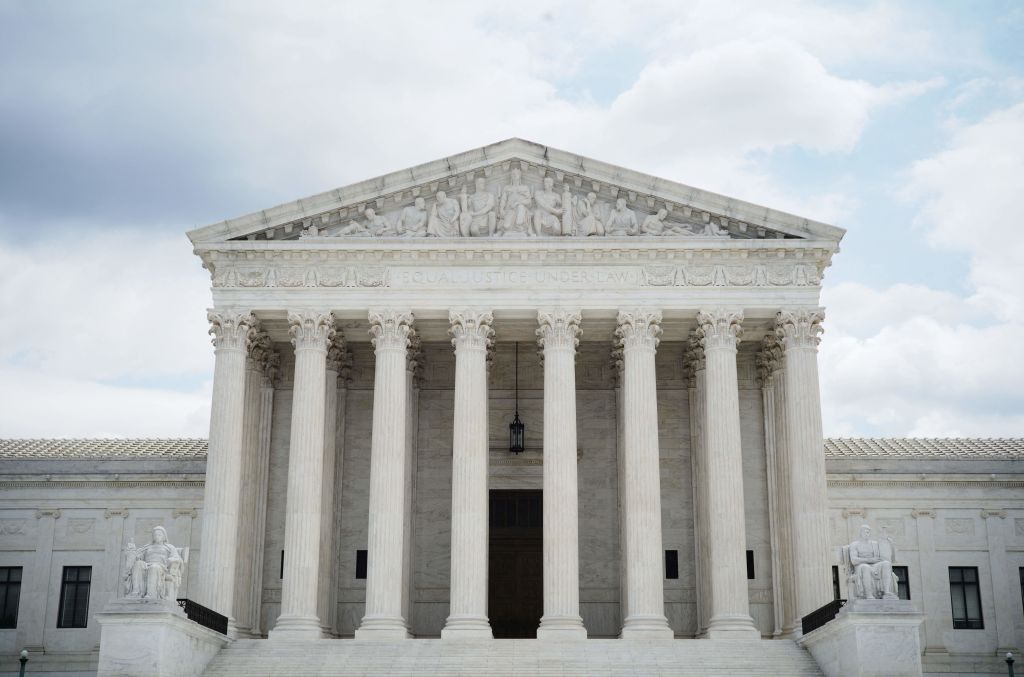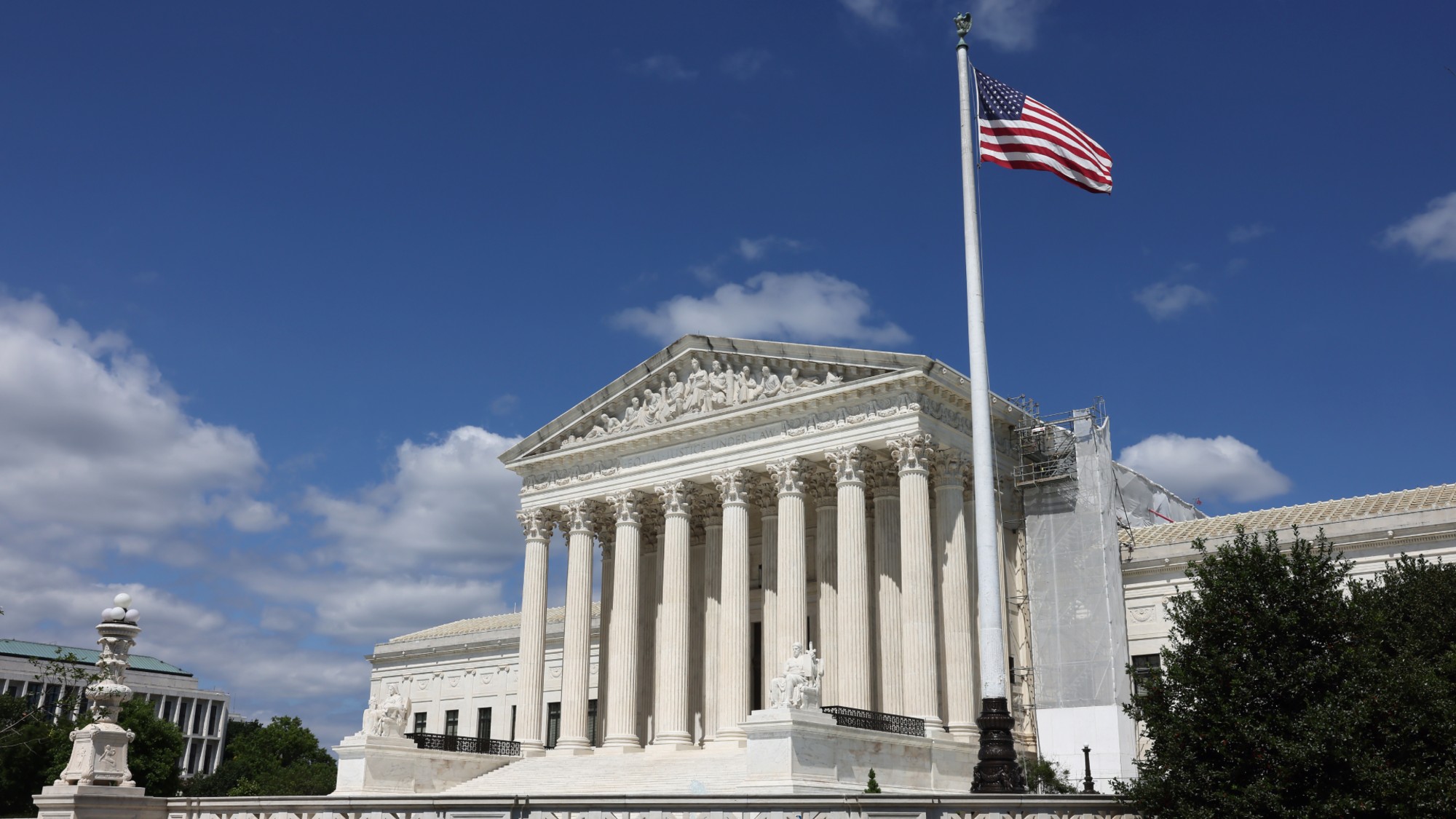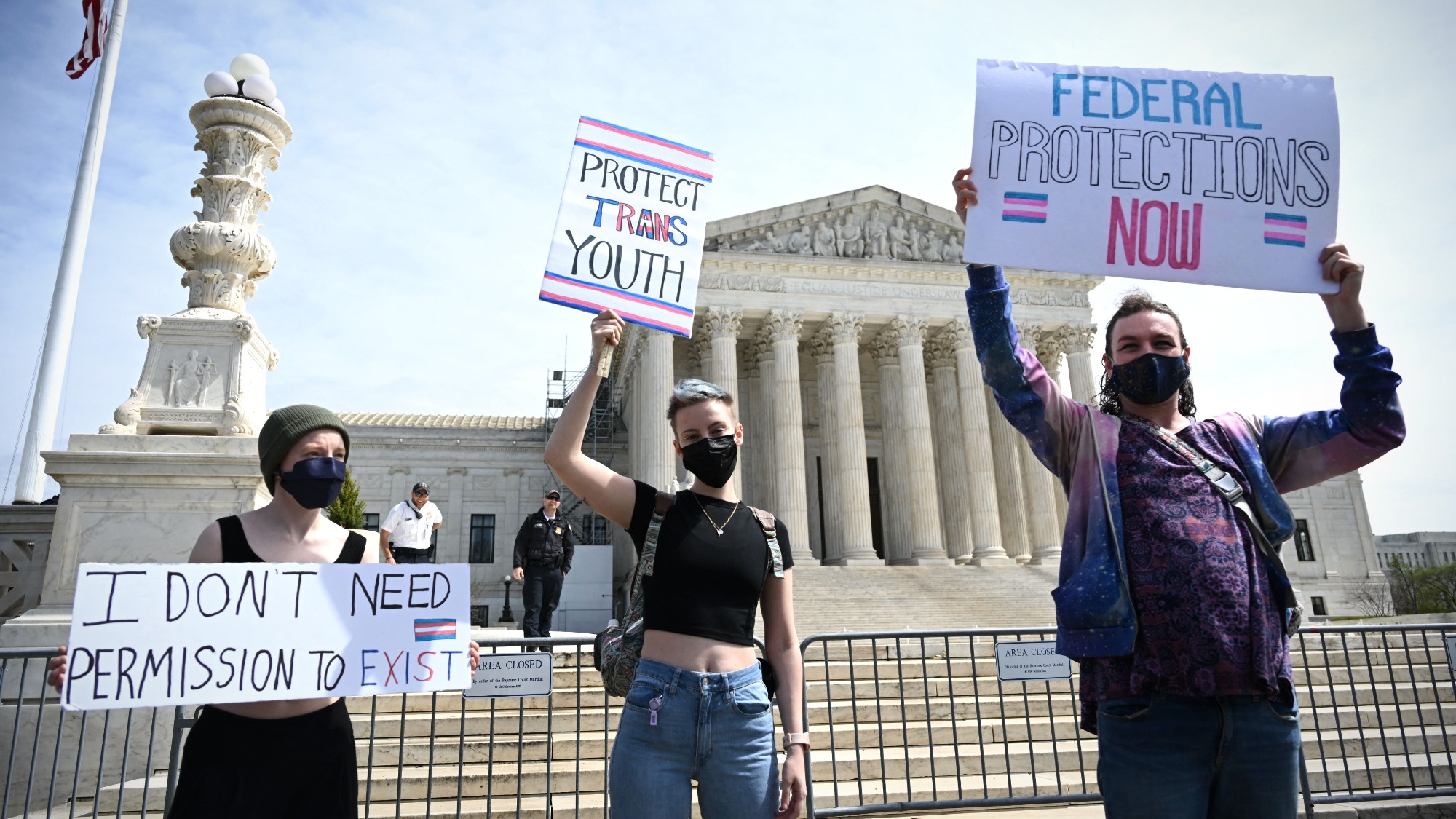Supreme Court hands win to 'dark money' groups in California donor disclosure ruling


A free daily email with the biggest news stories of the day – and the best features from TheWeek.com
You are now subscribed
Your newsletter sign-up was successful
In a 6-3 vote along ideological lines, the Supreme Court struck down a California regulation forcing nonprofits to disclose donors' personal information, CNBC reports. The Thursday decision is a victory for the conservative groups who challenged the law, but "bodes ill" for regulation down the line, dissenters note.
The rule required nonprofits to fork over their Schedule B forms — which include the "personal information of all donors nationwide who had contributed more than $5,000 in a given tax year" — so the state could police charity misconduct, CNBC writes. The court's majority ruled Thursday that while California has "an important interest" in preventing such wrongdoing, Schedule B collection does not "form an integral part of California's fraud detection efforts" and is therefore in violation of donors' First Amendment rights, per CNBC and The Hill.
"California's blanket demand that all charities disclose Schedule Bs to the Attorney General is facially unconstitutional," wrote Chief Justice John Roberts in the majority opinion.
The Week
Escape your echo chamber. Get the facts behind the news, plus analysis from multiple perspectives.

Sign up for The Week's Free Newsletters
From our morning news briefing to a weekly Good News Newsletter, get the best of The Week delivered directly to your inbox.
From our morning news briefing to a weekly Good News Newsletter, get the best of The Week delivered directly to your inbox.
The dissent, however, argued that such a decision spells trouble for regulating organizations in the future.
"Today's analysis marks reporting and disclosure requirements with a bull's-eye," wrote Justice Sonia Sotomayor. "Regulated entities who wish to avoid their obligations can do so by vaguely waving toward First Amendment 'privacy concerns.'"
Thursday's decision is also a blow to efforts to rein in "dark money political groups," in that it could complicate "donor-disclosure requirements for groups that often pour large sums into elections" but stop just short of triggering disclosure, Politico notes.
"We are now on a clear path to enshrining a constitutional right to anonymous spending in our democracy, and securing an upper hand for dark-money influence in perpetuity," said campaign finance reform advocate and Sen. Sheldon Whitehouse (D-R.I.), per CNN.
A free daily email with the biggest news stories of the day – and the best features from TheWeek.com
Brigid Kennedy worked at The Week from 2021 to 2023 as a staff writer, junior editor and then story editor, with an interest in U.S. politics, the economy and the music industry.
-
 How the FCC’s ‘equal time’ rule works
How the FCC’s ‘equal time’ rule worksIn the Spotlight The law is at the heart of the Colbert-CBS conflict
-
 What is the endgame in the DHS shutdown?
What is the endgame in the DHS shutdown?Today’s Big Question Democrats want to rein in ICE’s immigration crackdown
-
 ‘Poor time management isn’t just an inconvenience’
‘Poor time management isn’t just an inconvenience’Instant Opinion Opinion, comment and editorials of the day
-
 How far does religious freedom go in prison? The Supreme Court will decide.
How far does religious freedom go in prison? The Supreme Court will decide.The Explainer The plaintiff was allegedly forced to cut his hair, which he kept long for religious reasons
-
 The Supreme Court case that could forge a new path to sue the FBI
The Supreme Court case that could forge a new path to sue the FBIThe Explainer The case arose after the FBI admitted to raiding the wrong house in 2017
-
 ABC News to pay $15M in Trump defamation suit
ABC News to pay $15M in Trump defamation suitSpeed Read The lawsuit stemmed from George Stephanopoulos' on-air assertion that Trump was found liable for raping writer E. Jean Carroll
-
 Judge blocks Louisiana 10 Commandments law
Judge blocks Louisiana 10 Commandments lawSpeed Read U.S. District Judge John deGravelles ruled that a law ordering schools to display the Ten Commandments in classrooms was unconstitutional
-
 Supreme Court to weigh transgender care limits
Supreme Court to weigh transgender care limitsSpeed Read The case challenges a Tennessee law restricting care for trans minors
-
 ATF finalizes rule to close 'gun show loophole'
ATF finalizes rule to close 'gun show loophole'Speed Read Biden moves to expand background checks for gun buyers
-
 Hong Kong passes tough new security law
Hong Kong passes tough new security lawSpeed Read It will allow the government to further suppress all forms of dissent
-
 France enshrines abortion rights in constitution
France enshrines abortion rights in constitutionspeed read It became the first country to make abortion a constitutional right
